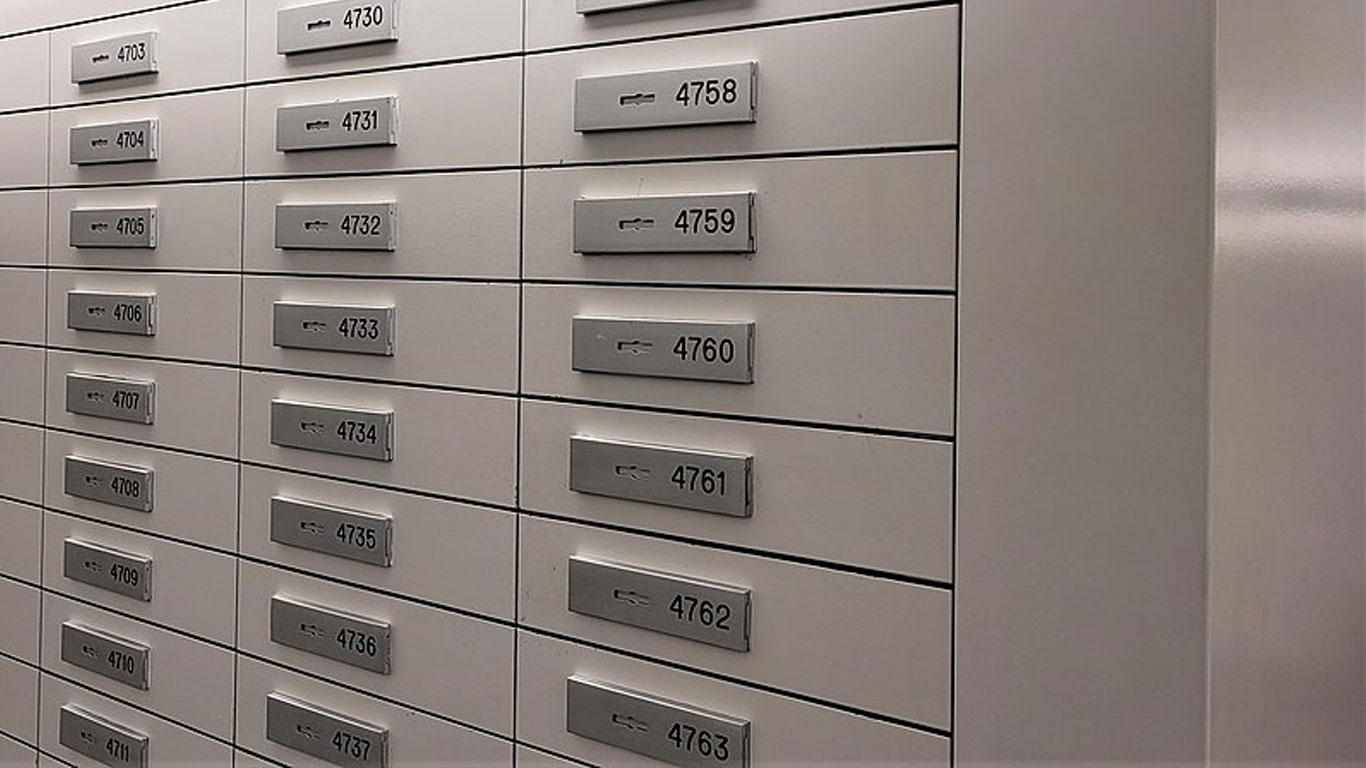You may have seen the recent New York Times article about Philip Poniz. He had stored his entire collection of rare watches in a Wells Fargo safe deposit box. They were his retirement plan. When he recently went to retrieve them, the box was empty. It’s a great article! The big take-away is the answer to the question, “Are Safe Deposit Boxes Safe?” The answer: “Nope, they aren’t.”
It used to be that we recommended storing original documents like birth certificates, car titles and savings bonds in safe deposit boxes. The argument was that they were safer than storing things at home. Between bad rental agreements, lax oversight, limited legal recourse, and the business trend of declining use, safe deposit boxes are less than ideal for storing valuable assets.
Systemic problems
The first big problem is that banks have less demand for safe deposit boxes. That means they are not a priority. The second big problem is that banks merge and change hands all the time. The physical assets, like safe deposits boxes, are sometimes a last consideration in those transitions. As those changes occur, boxes are sometimes consolidated or even relocated. Both increase the risk of loss and theft.
Lack of oversight and limited legal recourse
Most safe deposit box rental agreements state flat out that the contents are not protected under the insurance coverage the bank maintains. That means the bank has no liability if your precious items disappear, especially if there is a natural disaster like Hurricane Katrina or the Trade Center bombings.
And that, of course, means you can’t sue them for losses or hold them accountable. If your items are gone, they are just gone.
Alternative solutions
Rather than a safe deposit box, consider installing a fire-proof safe in your home. Make sure it’s bolted to the floor (the city I live in has regular video of thieves rolling a large gun safe out of a home and loading it into a waiting pickup truck out front). Because no safe is truly water- or fire-proof, wrap items in plastic and locate the safe in an area you think will be best protected in the case of a fire.
Another plus: the contents of your home safe, if inventoried and reported, are typically covered by your home-owners insurance. Make sure to discuss it with your insurance broker.
Still want to use a safe deposit box?
There are some situations where using a safe deposit box still may be the best option. Make sure to review your rental agreement carefully before you sign. Ask your insurance broker about additional insurance coverage that specifically covers the contents. Do not include any documents that you will need quickly like your will or your medical power-of-attorney paperwork. Do include digital copies of your family photos and spare keys. Make sure you document the inventory, and the location of both the safe deposit box and the keys for your heirs.
There are many things to consider when securing your valuable assets but selecting a safe deposit box might not be the best solution. It’s important to balance out the pros and cons that apply to your specific circumstances to make the right decision.




